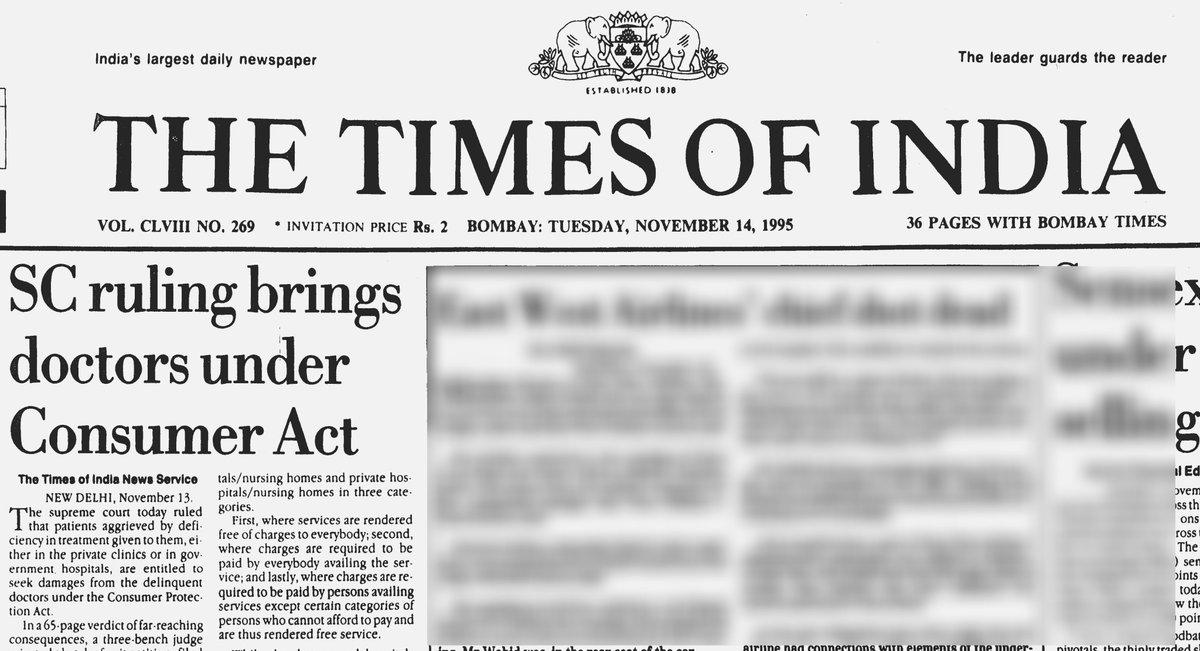
Farm laws & Market fundamentalism
Mainstream econ ideas, esp around the supposedly all-encompassing benefits of what is called the free market, and the powerful 'invisible hand' which supposedly guides everyone to correct decisions, hav dominated elite discussions on #farmlaws
Mainstream econ ideas, esp around the supposedly all-encompassing benefits of what is called the free market, and the powerful 'invisible hand' which supposedly guides everyone to correct decisions, hav dominated elite discussions on #farmlaws
In this thread I aim to acquaint ppl to a world which goes beyond these dominant ideas. The mainstream econ discourse, howev, often makes caricatures of opposing ideas & of critics. Eg: "they r ideologically driven". Or political, emotional, just jholawalas/activists. Etc.
What it does is primes young readers to think of the critiques of their ideas as intellectually inferior. Recently I came across such caricaturing in an article which argued that free Covid vaccination is not good, that vaccine allocation be "based on an economic way of thinking"
Also that "India must resist the temptation to give in to the outrage of sociologists, lawyers, judges, doctors, social workers, politicians and journalists, who... could botch up vaccine delivery because of a misunderstanding of market processes."
livemint.com/opinion/column…
livemint.com/opinion/column…
This kind of thinking is truly unfortunate, & that its implicit & explicit versions dominate our public discourse is depressing. It also sadly confirms the stereotype of the lordly economist who thinks they know better than every other person. 

Vaccines being a public good & life-saving, only a "social welfare" way of thinking must guide decisions. Now this way of thinking can surely include Econ ideas, but Econ should remain - & learn to remain - just ONE of the MANY inputs which go into public decision-making.
That article also offers a chance to look at another common claim: Are the ideas and views of those who think differently from mainstream Econ concepts less rigorous, or "not backed by 'hard' evidence" (as another bad-faith caricature argues)?
Herez a thread on why FREE vaccination is the only way that any major life-saving vax program shud be run. Theres a lot of links & scholarship cited. I leave it to the reader to decide which way of thinking makes more sense intellectually & humanistically
https://twitter.com/kikumbhar/status/1356601615235563520
Here its imp to reiterate that the social scientists who do not buy the magic version of free markets, r not saying that they be banished. But r certainly asking for free markets to be disallowed from dominating essential services (lik health, edu, certain aspects of agriculture)
Many dominant econ ideas, esp market fundamentalism, rely on decontextualized humans, dehumanized numbers stats and charts, & take as their baseline theories that were conceived decades to centuries ago mostly by white dudes in Britain or US.
On d oth hand, there r many (non-mainstream) economists & social scientists who bring in not just stats & theories, but also real-world ppl & ppl's experiences into analyses. They also bring in knowledge from other disciplines. I urge ppl to seek n read n listen to such analyses.
Specifically for the farm laws, i suggest this list of articles from the awesome @TheIndiaForum. These also show that economics only offers partial, tho of course useful, understandings of the world, & that we need to draw from other fields as well.
https://twitter.com/CheriChe/status/1461556223237521408
Then there r other, more general suggestions:
This one, titled 'The Tyranny of Economists', reviews a book that describes how economists & their numbers and graphs & often inhuman recommendations came to assume so much undeserved power in the world.
newrepublic.com/article/155205…
This one, titled 'The Tyranny of Economists', reviews a book that describes how economists & their numbers and graphs & often inhuman recommendations came to assume so much undeserved power in the world.
newrepublic.com/article/155205…

This is a sobering thread on the entirely predictable, and disastrous, consequences of privatization and free-marketization of essential services, in this case water supply.
https://twitter.com/VeganCyclist4/status/1456995718577668105
Which brings us to free-marketization and privatization in healthcare - a completely failed, not to say dangerous, idea which the Indian govt and the NITI Aayog have been obsessed over for years. Time's ticking here, & hope political parties pick this up.
https://twitter.com/SonaliVaid/status/1461553488760958978
Finally, here's a social scientist who asks us to be more radical: "Can the discipline of economics be reformed or do we need to abandon it and start anew?" @SheetalChabbers
"Economics has methods n assumptions that come out of colonization paradigms, ie, its axioms n theories were produced by observing ppl FROM A DISTANCE. Economists need to return to their social scientific n humanistic roots, and ask How can I become a student of the world again?"
• • •
Missing some Tweet in this thread? You can try to
force a refresh





